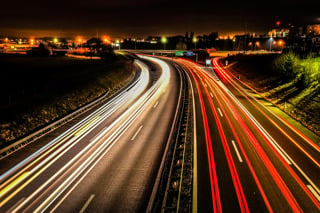Paul Hollick, chair of the Association of Fleet Professionals (AFP)
Can fleets meet the new 2030 electrification deadline? In a way, it’s a redundant question. The authorities have set a date in stone and so fleets have no choice. The question, really, is how will they hit the target?
The crux of the answer is that it is eminently do-able – but only if a whole range of factors are tackled, requiring a co-ordinated effort from fleets, Government and others.
The primary driver from a fleet point of view is going to be tax. Much reduced benefit-in-kind (BIK) tax for low and zero emissions vehicles is the key to current, rapidly-growing levels of EV and PHEV adoption. However, we only have tax tables through to 2024-25 and, if the Government is going to focus on just one thing to help our sector towards the deadline, it would be to make clear that similar rates will stay in place until the end of the decade.
Ideally, we’d also see similar measures adopted for electric vans. For a variety of reasons, e-LCV adoption lags behind cars, and more needs to be done to bring them into line.
The second point is battery charging. Really, for people who have a driveway at home, this is not going to be an issue, with the vast majority of charging set to be carried out domestically. However, there remain situations for which there are currently no universally viable solutions, such as charging for people who live in apartments or on terraced streets. Also, locations need to be identified where charging is likely to be needed en masse – at certain points on motorways, for example – and appropriate capacity created.
Will all of this infrastructure change come from the Government? It is required on such a large scale that private money will also probably be needed. However, some degree
of co-ordination at a national level is likely to be desirable.
A third point is what you might describe as corporate enthusiasm. I suspect even the most evangelical of us have probably been surprised at the degree of movement towards EVs that has been seen over recent months. We already have some AFP members that are no longer ordering petrol or diesel cars and it is worth bearing in mind that the 2030 change is only two or three fleet cycles away.
It’s satisfying to see UK businesses responding so well.
However, this enthusiasm does need to spread into some other areas, notably grey fleet, where petrol and diesel vehicles could potentially persist well into the 2030s and even 2040s. Employers need to think about the policies they will adopt in this area, with increased promotion and use of salary sacrifice schemes potentially one solution.
Finally, there are a whole load of loose ends that are presenting themselves in the wake of the 2030 announcement. Crucially, it doesn’t appear to include any serious strategy on hydrogen, which is essential for zero emissions buses and HGVs. Also, there is talk of road tolling as a replacement for fuel duty, and this needs careful discussion.
In conclusion, there’s a lot to do, and the journey to the end of the decade may well be bumpy, but it is one that is undeniably worthwhile. At the AFP, we’re very excited to be working in fleet at this moment in a time of radical, but meaningful, change.




















simhedges - 23/12/2020 22:16
"it would be to make clear that similar rates will stay in place until the end of the decade" - by the end of the decade the vast majority of new cars sold will be electric, and the cost of electric cars will have fallen greatly. The amount of highly taxed Electric and Diesel fuel sold will have dropped dramatically. So you not only need to be asked for tax breaks for electric cars, but you need to be suggesting what else the government should tax in order to keep funding the NHS, schools, benefits and all those other necessary things, as well as paying down the enormous debt that has built up due to COVID-19.